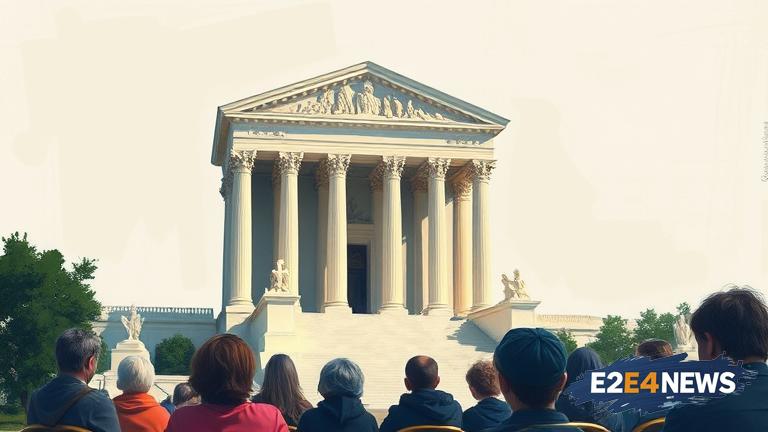The state of Mississippi has petitioned the US Supreme Court to permit the implementation of social media restrictions for minors, in a bid to safeguard their online safety and mental well-being. This move comes as concerns over the impact of social media on young people’s lives continue to grow. The petition, filed by the Mississippi Attorney General’s office, argues that the state has a compelling interest in protecting its minors from the potential harms of social media. These harms include cyberbullying, online harassment, and exposure to explicit content. The state also cites the potential long-term effects of excessive social media use on minors’ mental health, including increased risk of depression, anxiety, and decreased attention span. Mississippi’s petition is in response to a lower court ruling that blocked the state’s attempt to enforce social media restrictions on minors. The lower court had deemed the restrictions unconstitutional, citing the First Amendment’s protection of free speech. However, Mississippi argues that the restrictions are necessary to protect the well-being of its minors and that they do not infringe upon the First Amendment rights of social media companies. The state’s petition has sparked a heated debate over the role of government in regulating social media and the balance between online safety and free speech. Proponents of the restrictions argue that they are necessary to protect vulnerable minors from the potential dangers of social media, while opponents argue that they are an overreach of government authority and could stifle online expression. The Supreme Court’s decision on this matter could have significant implications for the future of social media regulation in the US. If the court rules in favor of Mississippi, it could pave the way for other states to implement similar restrictions. On the other hand, if the court rules against Mississippi, it could limit the ability of states to regulate social media and protect minors online. The case has also sparked a wider conversation about the responsibility of social media companies to protect their young users. Many social media companies have faced criticism for their handling of online safety and mental health issues, and some have implemented their own measures to protect minors. However, these measures are often voluntary and may not be enough to address the concerns of parents and policymakers. As the Supreme Court considers Mississippi’s petition, it will be weighing the competing interests of online safety, free speech, and government regulation. The court’s decision will be closely watched by policymakers, social media companies, and parents across the US. The case has the potential to shape the future of social media regulation and the online experiences of millions of young people. In recent years, there has been a growing body of research on the impact of social media on minors, including studies on the effects of social media on mental health, social relationships, and cognitive development. This research has informed the development of social media policies and regulations, including those proposed by Mississippi. The state’s petition is part of a larger effort to address the challenges posed by social media and to ensure that young people are protected online. As the Supreme Court considers this case, it will be taking into account the latest research and developments in the field of social media regulation. The court’s decision will have significant implications for the future of social media and the online experiences of minors. The case is a reminder of the importance of balancing online safety with free speech and the need for effective regulation of social media. It also highlights the need for social media companies to take responsibility for protecting their young users and for policymakers to develop effective policies to address the challenges posed by social media. Ultimately, the Supreme Court’s decision will shape the future of social media regulation and the online experiences of millions of young people. The case is a critical moment in the ongoing debate over social media regulation and the balance between online safety and free speech. As the court considers Mississippi’s petition, it will be weighing the competing interests of online safety, free speech, and government regulation. The court’s decision will be closely watched by policymakers, social media companies, and parents across the US. The case has the potential to shape the future of social media regulation and the online experiences of millions of young people. The Supreme Court’s ruling could have far-reaching implications for the social media industry and the way that companies approach online safety and regulation. It could also inform the development of social media policies and regulations at the state and federal level. As the court considers this case, it will be taking into account the latest research and developments in the field of social media regulation. The court’s decision will be a significant moment in the ongoing debate over social media regulation and the balance between online safety and free speech.
